Requiem for Matthew Shepard: Da Camera Singers will perform acclaimed oratorio examining legacy of young gay man murdered 25 years ago
| Published: 05-19-2023 2:22 PM |
A little less than 25 years ago, Matthew Shepard, a young, gay University of Wyoming student, was severely beaten by two other young men outside of Laramie, Wyoming, who then left him to die by tying him to a fence alongside a pasture at night in freezing weather.
The brutal murder of Shepard, who was 21, shocked not just the country but the entire world, and it led to the first passage of hate crime legislation in the United States. Over the years, Shepard’s death has also inspired many artistic works, from films to plays to poetry to music.
On Sunday, May 21, the longest musical work dedicated to the story, “Considering Mathew Shepard,” will have its western Massachusetts premiere when the Da Camera Singers perform the 100-minute oratorio at Greenfield High School. The production has been funded in part through a grant from the Massachusetts Cultural Council.
But though the oratorio, by Texas composer Craig Hella Johnson, delves into the shocking death of Shepard, ultimately it’s also about “hope and understanding and forgiveness,” said Sheila Heffernon, the longtime artistic director of Da Camera Singers.
“Hopefully people who attend the concert will leave with a sense of love,” Heffernon said during a recent phone call. “This is really about remembering Matthew and who he was and finding the means to come together in peace.”
As Johnson writes on the website of conspirance, a vocal ensemble he directs in Texas, “I wanted to create, within a musical framework, a space for reflection, consideration and unity around his life and legacy.”
The Da Camera Singers, formed in 1973 in Amherst by members of separate madrigal groups, have a tradition of singing a variety of Renaissance music and other older choral works.
But in the last 10 years especially, the group’s 45 adult singers, divided roughly equally between Franklin and Hampshire counties, have turned increasingly to the work of more modern, contemporary, and secular composers.
Article continues after...
Yesterday's Most Read Articles
 New owners look to build on Thomas Memorial Golf & Country Club’s strengths
New owners look to build on Thomas Memorial Golf & Country Club’s strengths
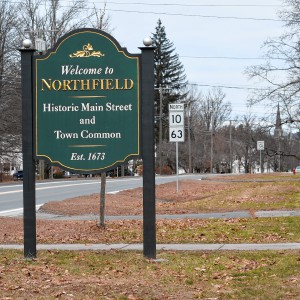 Survey shows Northfield residents want new development — but not near their homes
Survey shows Northfield residents want new development — but not near their homes
 Orange man gets 12 to 14 years for child rape
Orange man gets 12 to 14 years for child rape
 As emergency action plan is crafted, Tree House to maintain 1,500 capacity for summer
As emergency action plan is crafted, Tree House to maintain 1,500 capacity for summer
 Real Estate Transactions: April 19, 2024
Real Estate Transactions: April 19, 2024
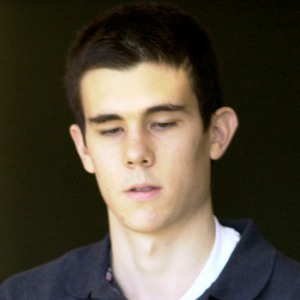 Man granted parole for role in 2001 deaths of 2 Dartmouth College professors
Man granted parole for role in 2001 deaths of 2 Dartmouth College professors
Heffernon, now in her 17th season of leading Da Camera, recalls first learning of “Considering Matthew Shepard,” which debuted in 2016, about five years ago after hearing some of the music on Spotify. She was in her office at the Northfield Mount Herman School, where she previously was the director of musical and choral programs.
“I remember I stopped and looked at what was playing because it was so striking,” she said. “Later I found the whole performance on YouTube and was completely drawn in.” (She and her husband also saw a performance of the oratorio in New York City last fall.)
“Considering Matthew Shepard,” which Heffernon describes as a three-part “fusion oratorio” with some elements of musical theater, incorporates a variety of musical styles — country & western, blues, gospel, classical, Broadway-style tunes — and the singers are accompanied by a small chamber orchestra composed of piano, guitar, bass, percussion, clarinet and strings.
The story covers the arc of Shepard’s life, from his boyhood to his murder to the aftermath of his death, including the trial of his killers, Aaron McKinney and Russell Henderson. It also considers the response of Shepard’s parents, Dennis and Judy, who formed a foundation named for their son that advocates for tolerance and LGBTQ rights.
To tell that story, Johnson created a libretto that draws on the words and writing from several sources, including Matthew Shepard’s journals, newspaper reports, interviews with Shepard’s parents, and the poetry of, among others, Lesléa Newman.
The production also includes some straight narration that takes place against a backdrop of music.
In 2012, Newman, the Holyoke writer and former Northampton poet laureate, published “October Mourning: A Song for Matthew Shepard,” a novel in verse that explored Shepard’s death from several perspectives and voices, including the fence he was tied to and the stars overhead.
Shepard’s death touched her deeply, Newman says, in part because she had previously been invited to speak at the University of Wyoming for the school’s Gay Awareness Week in fall 1998. She arrived just as Shepard died — Oct. 12, 1998 — six days after he’d been assaulted, and she found herself addressing a campus audience and community shaken by the violence.
“I came with a message of hope, that it was possible to be out and live a full life,” said Newman, who had first gained wider attention with “Heather Has Two Mommies,” her 1989 children’s book. “But I kept thinking about Matthew — his death stayed with me.”
She wrote an essay about him shortly after her trip to Wyoming, but 10 years later she began her work on “October Mourning,” in part out of concern “that many people didn’t know who he was. And that wasn’t acceptable to me.”
She was flattered when Johnson later approached her and asked to use parts of her book in his work, though she says she didn’t know what might come of it.
“But then he comes back with this magnificent oratorio, and now I couldn’t be more thrilled to be part of it,” said Newman, who will introduce the May 21 show.
Both Newman and Heffernon say much of the appeal of “Considering Matthew Shepard” is the depth of the work. Heffernon says Johnson’s mix of music and text “really celebrates the landscape — you get the sense of the sweeping prairies of Wyoming, with distant mountains and the stars glittering overhead.”
Johnson, she notes, has also modeled the oratorio’s central section on noted music such as J.S. Bach’s “Passions,” major musical pieces from the 18th century that were set to sections of the Bible describing Jesus Christ’s last days.
The two murderers, Henderson and McKinney — both are serving consecutive life sentences — are also represented in the oratorio, but not in a simple, black-and-white way, Heffernon says.
For instance, the song “I am like you,” she notes, examines the question “of what any of us might be capable of doing under certain circumstances, how we might hurt someone else.”
Heffernon says Da Camera Singers had originally planned to present “Considering Matthew Shepard” in spring 2020 before the pandemic canceled all performances. Revisiting the oratorio last fall, she says, the group had to re-examine the heavy investment it would take to pull it off.
“It’s a huge work — 100 minutes of music with no intermission,” she said. “And it’s emotionally tough. There were some members wondering ‘Can I sing this?’”
Ultimately everyone came on board, she noted, and she’s glad they’re performing it now, at a time when legislation has been passed in numerous states that’s directed against transgender and non-binary people.
“Absolutely,” Heffernon said. “This work really speaks to the moment.”
Sunday’s concert, which is free — donations are encouraged — begins at 4 p.m., and it includes guest narration by some well-known local figures, including former Massachusetts Senate President Stan Rosenberg, ACLU attorney Bill Newman from Northampton, and New England Public Media reporter Jill Kaufman.
For more information, visit dacamerasingers.org.
Steve Pfarrer can be reached at spfarrer@gazettenet.com.

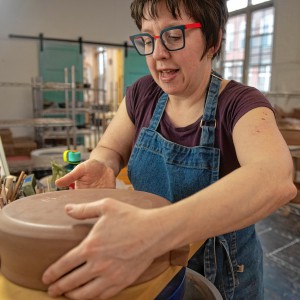 Hitting the ceramic circuit: Asparagus Valley Pottery Trail turns 20 years old, April 27-28
Hitting the ceramic circuit: Asparagus Valley Pottery Trail turns 20 years old, April 27-28 Best Bites: A familiar feast: The Passover Seder traditions and tastes my family holds dear
Best Bites: A familiar feast: The Passover Seder traditions and tastes my family holds dear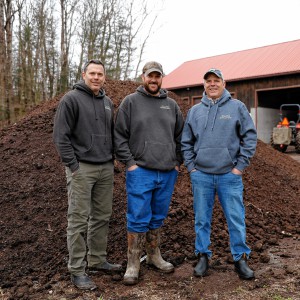 Valley Bounty: Your soil will thank you: As garden season gets underway, Whately farm provides ‘black gold’ to many
Valley Bounty: Your soil will thank you: As garden season gets underway, Whately farm provides ‘black gold’ to many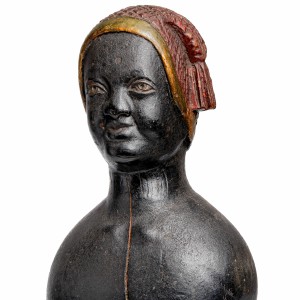 Painting a more complete picture: ‘Unnamed Figures’ highlights Black presence and absence in early American history
Painting a more complete picture: ‘Unnamed Figures’ highlights Black presence and absence in early American history
